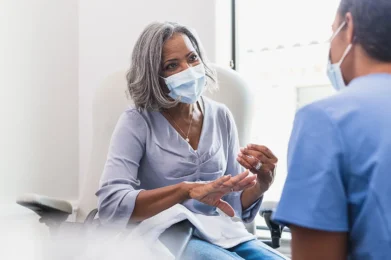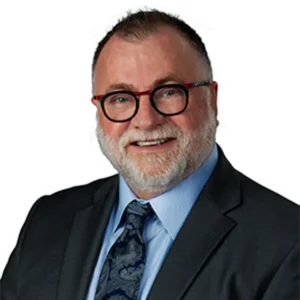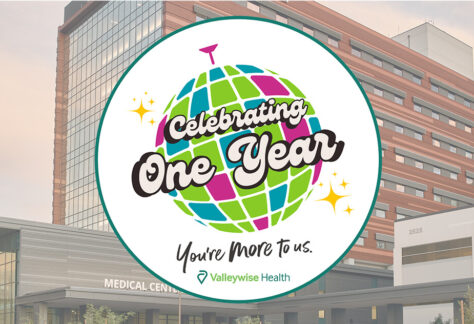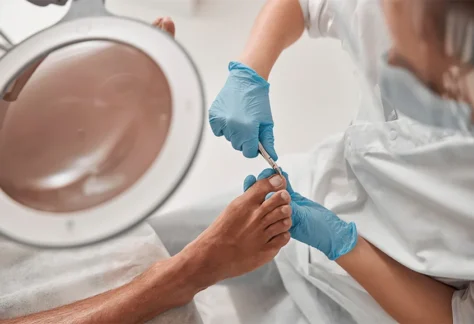In This Article:
- The LGBTQ community has long faced stigmas that prevent them from seeking quality health care. As a patient-advocate, LGBTQ people can ensure their health care provider provides inclusive care so they get the health care they need and deserve.
The LGBTQ community has long faced challenges in accessing inclusive health care. The LGBTQ community is not monolithic–they have diverse gender identities, sexual orientations and their individual experiences differentiate them by race/ethnicity, income and other personal characteristics. Lesbians, gay men, bisexual people, trans people and queer people all have different health care needs. Each of these groups has unique health care needs, but they are united by the fact that they tend to be denied access to comprehensive, high-quality health care.
Since there are barriers that prevent many LGBTQ people from seeking care, there are several steps each person can take to advocate for themselves in a healthcare setting. Read more on this below.
How to check if your doctor or provider is LGBTQ-friendly
As an LGBTQ patient, you may have to serve as your own patient-advocate. Depending on where you’re located, your doctor’s office may or may not have experience working with LGBTQ patients. Here are several tips on how to start a conversation with your doctor’s office to ensure they will provide an inclusive health care experience for you.
- Do research online. Read reviews. Has your doctor or provider been given any recognition for providing inclusive care?
- Ask for referrals from LGBTQ friends in your community. Do any of your friends have specific doctors they recommend? Reach out to your local LGBTQ center. They may established partnerships with local doctors in the area.
- Call the doctor’s office. Ask if they have a history of serving LGBTQ patients. Remain anonymous if you want. The CDC also offers information on LGBT Health clinics by State and City.
- If you feel comfortable, ask your doctor to share about their background serving LGBTQ patients.
Discrimination and stigmas that prevent LGBTQ people from seeking care
Members of the LGBTQ community face homophobia, transphobia and other stigmas that negatively affect their desire to seek out quality health care. These negative stigmas and discriminatory practices can contribute to poor physical and mental health. LGBTQ people may be less likely to seek out inclusive health care if they experience discrimination in a health care setting. Doctor’s offices must work to create inclusive care environments that help members of the LGBTQ community feel nurtured and safe. Here are several stigmas that prevent LGBTQ people from seeking care:
- Anxiety about cost. Not all LGBTQ people have insurance coverage, or the ability to pay high insurance bills.
- Poor experiences. Having one negative experience in a health care setting can negatively impact a person’s desire to seek out care again.
- Lack of culturally and educationally competent medical professionals. Not all medical professionals are informed about LGBTQ health and they can sometimes ask naïve questions that come off as offensive.
- Fear of “coming out” as gay, queer, bisexual or trans to a medical professional. Not every person feels comfortable “coming out” to a stranger, for fear of rejection, or worse.
- Homophobia/transphobia. Some LGBTQ patients have faced outright discrimination and don’t want to put themselves in a situation to experience that again.
Valleywise Health, an LGBTQ+ Healthcare Equality Leader
Valleywise Health is a culturally competent institution and safe place for the LGBTQ community to come to for any health concerns. Valleywise Health was recently named an LGBTQ+ Healthcare Equality Leader by the Human Rights Campaign (HRC) Foundation, the educational arm of the nation’s largest lesbian, gay, bisexual, transgender and queer (LGBTQ) civil rights organization.
The HRC Healthcare Equality Index evaluates and scores healthcare facilities on detailed criteria falling under four central pillars:
- Foundational Policies and Training in LGBTQ+ Patient-Centered Care
- LGBTQ+ Patient Services and Support
- Employee Benefits and Policies
- Patient and Community Engagement
Valleywise Health launched several initiatives within the past year, including:
- Sexual orientation and gender identity inclusion in medical records and processes
- Championing the use of pronouns throughout Valleywise Health
- Making strategic changes to honor the identities of patients in a respectful, affirming manner
Along with these new initiatives, Valleywise Health has long been recognized for providing inclusive care to the LGBTQ community through Valleywise Community Health Center – McDowell, a specialty clinic providing primary care services for HIV-positive patients, HIV prevention through PrEP and transgender hormonal therapy. Valleywise Health, which expanded this care to its Mesa location, serves 4,000 LGBTQ patients annually.
If you want to seek primary care services, visit a Valleywise Health Primary Care office. Call 1-833-VLLYWSE to book an in-person or virtual Primary Care appointment today.
Sources:
- https://aspe.hhs.gov/sites/default/files/2021-07/lgbt-health-ib.pdf
- https://valleywisehealth.org/valleywise-health-earns-perfect-score-on-lgbtq-healthcare-equality-by-human-rights-campaign/
- https://www.healthline.com/health/mental-health/find-lgbtq-ally-health-provider#Before-the-first-appointment-
- https://www.cdc.gov/msmhealth/stigma-and-discrimination.htm








